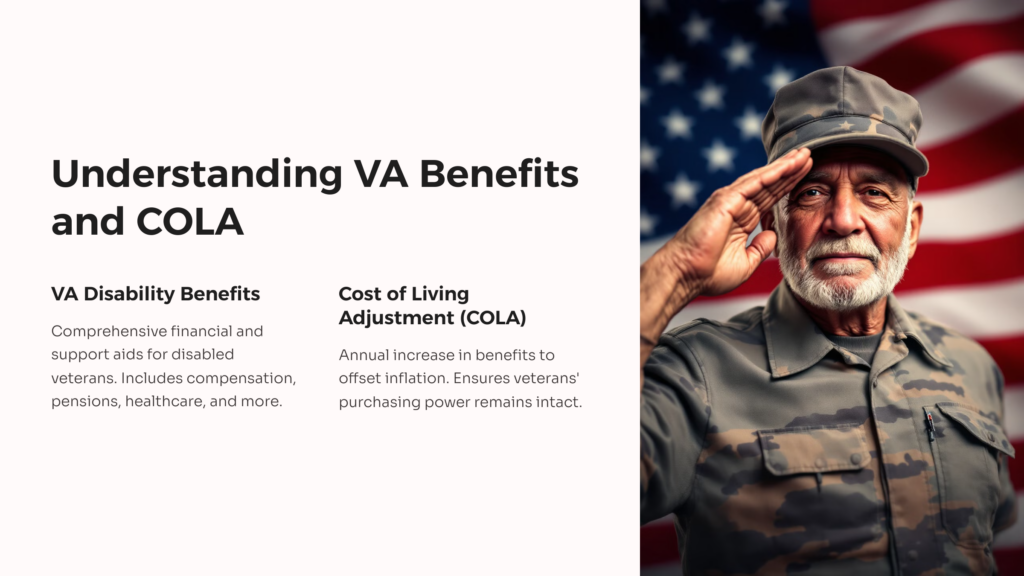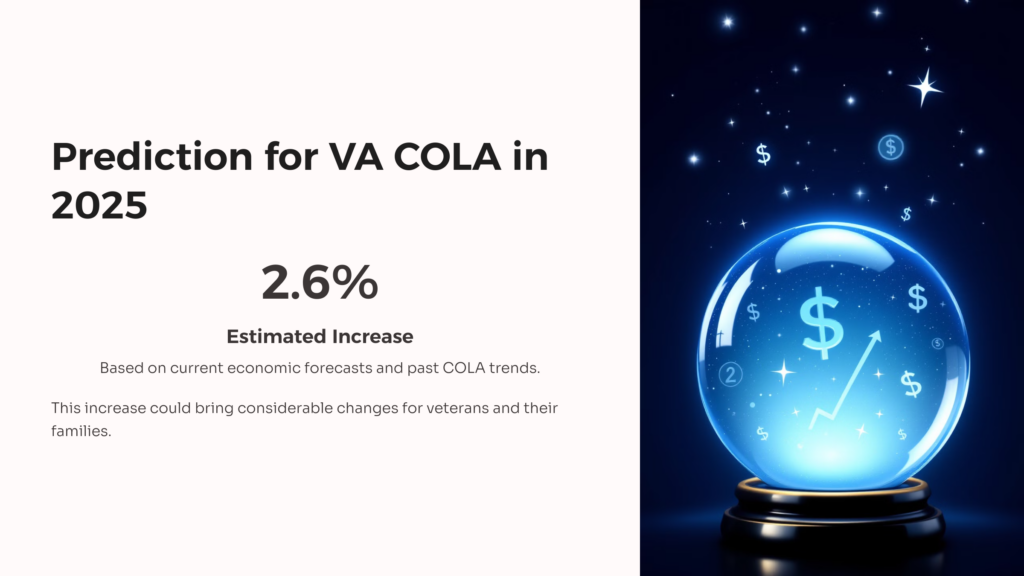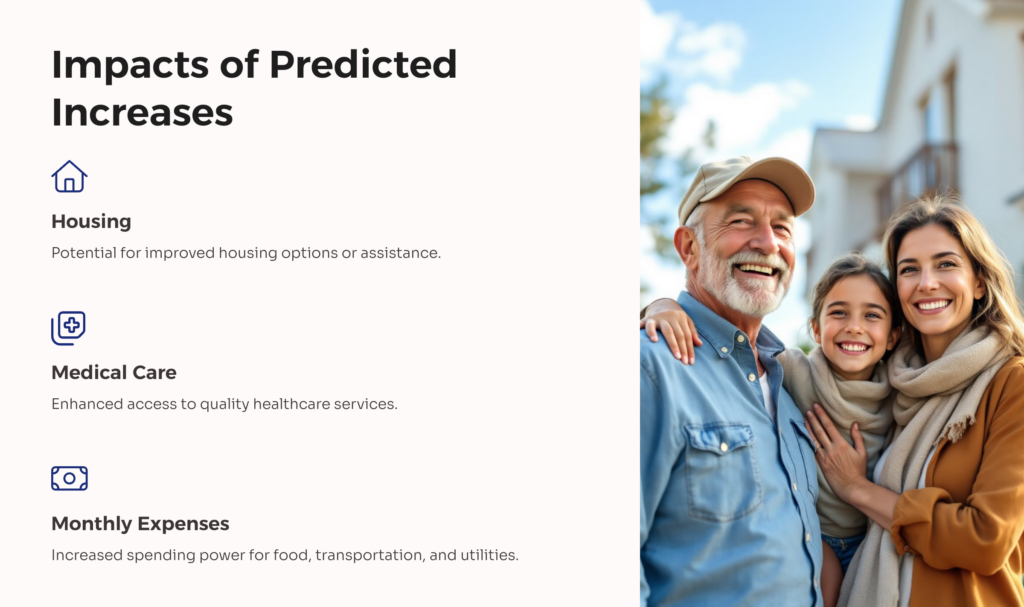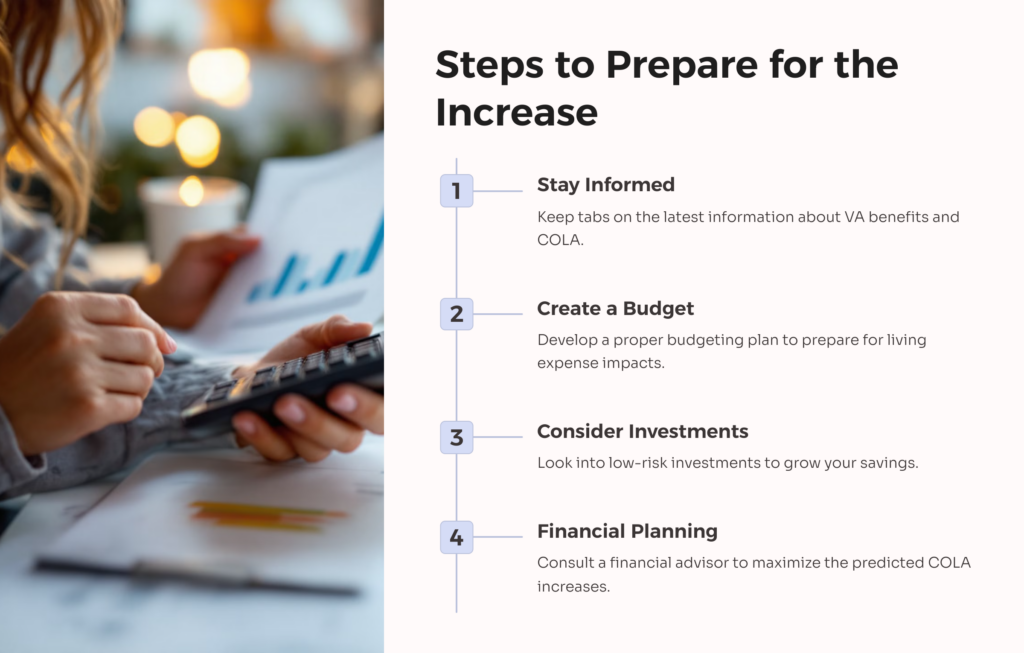Veterans Affairs (VA) benefits are a critical lifeline for those who have served in the United States armed forces. These VA disability benefits, ranging from healthcare to pensions, play a crucial role in sustaining the quality of life for disabled veterans. However, the increasing financial pressures of day-to-day living make adjustments to these disability benefits, known as Cost of Living Adjustments (COLA), necessary. As we gaze into the future, specifically the year 2025, we find ourselves wondering what potential changes could be in store for the VA cost of living increase 2025.
VA Benefits and COLA

VA disability benefits are comprehensive financial and support aids extended to disabled veterans for their military service. This includes those who were on active duty, in the Army, Marine Corps, Navy, or Air Service and were not dishonorably discharged. These benefits encompass compensation, pensions, education and training, healthcare, home loan guarantee, insurance, dependency, and indemnity compensation.
COLA is an adjustment made to meander the inflationary tide, ensuring that the recipients’ purchasing power remains intact. In essence, it is a raise to VA benefits to offset the living adjustment of inflation. COLA for VA benefits is tied to the COLAs for Social Security benefits, which are determined based on the Bureau of Labor Statistics’ Consumer Price Index (CPI).
Looking back historically, COLAs have gradually increased veterans benefits, reflecting the continuous rise of living costs. This trend underscores the importance of COLAs to ensure veterans and their families continue to meet their financial needs.
Factors Affecting COLA
The determination of the cost of living adjustment is based on various economic parameters. Primary among them are inflation rates and the CPI. The consumer price index indicates how much the average price of certain goods and services, collectively termed “market baskets”, has changed over a certain period. The COLA is calculated by comparing the CPI in the third quarter of the current year to the CPI in the third quarter of the previous year.
In our rapidly shifting global economy, especially in the wake of COVID-19, inflation rates could drastically affect COLA. The pandemic has driven major changes in consumer behavior and commodity pricing, and it’s yet unclear how these fluctuations will impact COLAs for veteran benefits in the long run.
Prediction For VA COLA in 2025

While predicting exact future economic conditions is a tough pursuit, based on current economic forecasts, inflation rates, and past COLA trends, we can anticipate that 2025 may see an increase in Veterans Affairs COLA disability compensation.
Some estimates predict an increase of 2.6%. That number might seem low, but it still falls within the average for the past ten years.
If these predictions hold true, it could bring considerable changes for each veteran and their family that depend on disability compensation. These adjustments may affect the amount of financial support available to veterans and, in turn, their lifestyle, financial stability, and overall well-being.
Impacts of The Predicted Increases

Proposed increases in VA COLA could impact several facets of veterans’ lives. Housing and medical care are among the areas that might see significant effects due to the increased cost of living. Monthly expenses, including food, transportation, and utilities, may also be impacted. After all, an increased COLA means higher veterans benefits, which translates into more spending power.
Steps To Prepare For The Increase

Preparation and knowledge are key to navigating the murky waters of potential COLA increases. Here’s some advice for veterans and their families:
- Stay informed: Constantly keep tabs on the latest information about VA benefits and COLA.
- Create a Budget: A proper budgeting plan can better prepare you for any impacts on living expenses.
- Investment: If possible, consider some low-risk investments to grow your savings.
- Financial Planning: Consulting a financial advisor could help you make the most of the predicted COLA increases.
Conclusion
Understanding and preparing for potential COLA changes is essential for veterans and their dependents. The impact on VA monthly benefit amounts due to the predicted increase in COLA in 2025 could be significant. However, with the right information and preparation, veterans can ensure these adjustments do not catch them off guard.
With the predicted VA COLA increase in 2025, staying informed, planning, and preparing now is of the utmost importance. The goal is clear: to ensure that our veterans continue to benefit from the VA benefits they have earned with their valiant service to the nation.
 AllVeteran.com Advisors
AllVeteran.com Advisors
With expertise spanning local, state, and federal benefit programs, our team is dedicated to guiding individuals towards the perfect program tailored to their unique circumstances.











